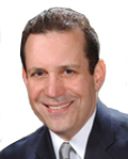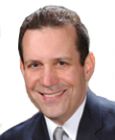Spirituality
Medical Miracles--Embracing Spiritual Phenomena
Pursuits of More Integrative Approaches to Health and Healing
Posted December 29, 2013

Medical miracles refer to events that are unanticipated and inexplicable, outside the range of medical precedents and the laws of nature as assessed by science. These miracles often represent remarkable results that are either outside of known medical or scientific expectations or breakthroughs in medical sciences that occur against all odds.
Scientists subscribing to traditional assumptions of the scientific method emphasize that metaphysical topics, involving the supernatural or God are, by definition, outside of the scope of science. However, in recent decades, a changing climate of the understanding of science, related to limitations in classical physics through quantum mechanics as well recognition of the healing significance of spirtual practices, has expanded the assumptions of scientists who are open to recognizing that the scientific method may consider the impact of metaphysical or supernatural phenomena, as these, at minimum, may affect outcomes.
While much about treatment, healing, and practice in medicine is not fully understood yet practiced on the basis of outcome results, nonetheless, the rigorous application of the scientific method has propelled the field to significant medical advances and discovery. Some medical educators are appalled that medical research considers prayer much less medical miracles as anything more than information that can be explained in physical terms.
Professor Gil Gaudia an emeritus professor at State University of New York and an avowed atheist argues that considering God or prayer in medicine “Is a serious degeneration of the terms, ‘medical research,’ and/or ‘scientific research.’ As a result, accepted standards of research inquiry are falling by the wayside [1].

While most medical professionals conservatively reference medical miracles as unexplained or unpredictable phenomena, others embrace a holistic integration that includes faith in medical practice, recognizing spirituality as an substantive resource for healing. When Dr. Eben Alexander, a Harvard academic neurosurgeon and formerly agnostic awoke following a life threatening and debilitating coma from E-Coli meningitis, he described a life-changing event. Not only does he meet the medical criteria of a medical miracle, converted from faithlessness to faithfulness regarding heaven, God, and the soul, but writes a book entitled Proof of Heaven, detailing his journey while unconscious with information that is not scientifically explained as the part of the brain that controls thought and emotion was completely shut down in his coma. Nonetheless, during this coma, he explains events confirming for him that God and the soul are real and that death is only a transition. He states that while in a coma, “I was communicating directly with God…I was doing what every soul is able to do when they leave their bodies, and what we can all do right now through prayer and deep meditation” [2].

Similarly, Dr. Donn M. Schroder, president of the Midwest Surgical Association, observes that studies regarding how prayer improve medical outcomes show both significant and insignificant results, as a function of methodological flaws; yet, he argues that prayer can enhance surgical outcomes, evidenced through positive measurable changes that occur in prayer, connectedness in patient/doctor/God relationship, the significance of prayer for the majority of the population, and the importance of the physician as a participant in the serious challenge created by a surgical event; concluding, “Surgeons who want the best for their patient need to utilize every tool available, and to quote one of my patients, ‘Prayer is a powerful tool’” [3].
[1] Gaudia, Gil, “About Intercessory Prayer: The Scientific Study of Miracles,” MedGenMed. March 9(1):56, p. 5. http://www.ncbi.nlm.nih.gov/pmc/articles/PMC1924985/
[2] Alexander, Eben, Proof of Heaven: A Neurosurgeon’s Journey into the Afterlife (New York: Simon and Schuster), 2012, p. 161. [3] Schroder, Sonn M., “Midwest Surgical Association Presidential Address: Can Prayer Help Surgery?” The American Journal of Surgery (2011) 201, 275-278.
[3] Schroder, Sonn M., “Midwest Surgical Association Presidential Address: Can Prayer Help Surgery?” The American Journal of Surgery (2011) 201, 275-278.
John T. Chirban, Ph.D., Th.D. is a clinical instructor in psychology at Harvard Medical School and author of True Coming of Age: A Dynamic Process That Leads to Emotional Stability, Spiritual Growth, and Meaningful Relationships. For more information please visit www.drchirban.com, https://www.facebook.com/drchirban and https://twitter.com/drjohnchirban.


